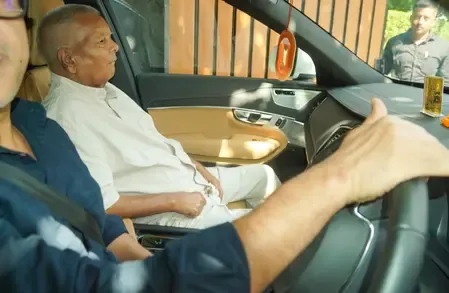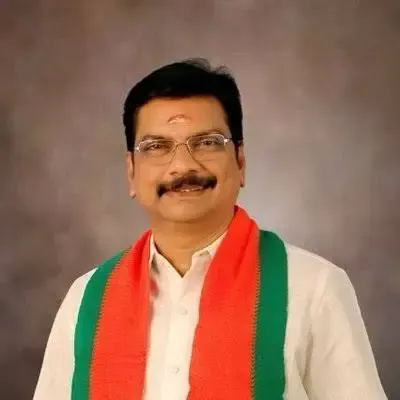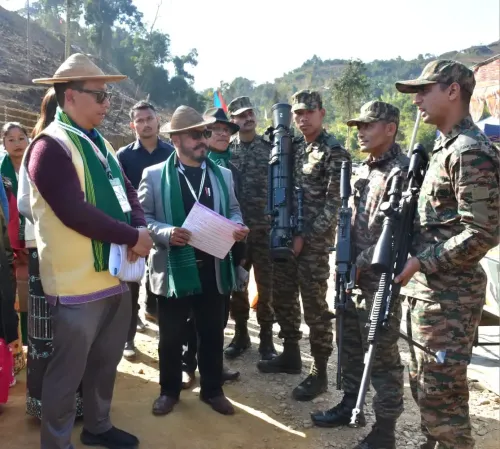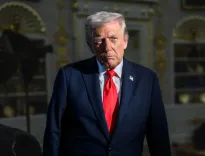Justice B.R. Gavai Nominated as Next Chief Justice of India
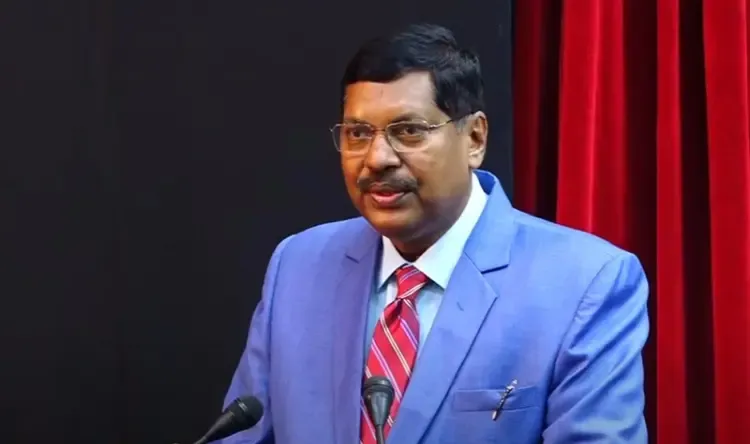
Synopsis
Key Takeaways
- Justice B.R. Gavai nominated as the next Chief Justice of India.
- CJI Sanjiv Khanna steps down on May 13, 2023.
- Justice Gavai to serve as 53rd CJI until November 23, 2025.
- Gavai's legal background includes Constitutional and Administrative Law.
- He advocates for the application of the creamy layer principle for SCs and STs.
New Delhi, April 16 (NationPress) Chief Justice of India (CJI) Sanjiv Khanna has put forward the name of Justice B.R. Gavai as his successor.
CJI Khanna is set to step down on May 13, concluding approximately 6 months in the country’s top judicial position.
Justice Gavai is poised to become the 53rd CJI, with a tenure extending beyond 6 months, concluding on November 23, 2025.
CJI Khanna has formally communicated to the Central government, endorsing Justice Gavai, following the customary practice of the outgoing CJI recommending the senior-most judge for succession.
As per the Memorandum of Procedure, the outgoing CJI is requested by the Centre to suggest a successor roughly one month prior to retirement.
Justice Gavai ascended to the Supreme Court of India on May 29, 2019. He was first appointed as an Additional Judge at the Bombay High Court in November 2003 and became a permanent Judge in November 2005.
Before his elevation to the Bench, he specialized in Constitutional Law and Administrative Law, serving as the Standing Counsel for the Municipal Corporation of Nagpur, Amravati Municipal Corporation, and Amravati University. He was also appointed as Assistant Government Pleader and Additional Public Prosecutor at the Bombay High Court, Nagpur Bench from August 1992 to July 1993.
On January 17, 2000, he became the Government Pleader and Public Prosecutor for the Nagpur Bench.
In the Supreme Court, Justice Gavai participated in the 7-judge Constitution Bench addressing whether sub-classification among reserved category groups for enhanced treatment is permissible under the Constitution. He advocated for the application of the “creamy layer” principle to Scheduled Castes (SCs) and Scheduled Tribes (STs) in relation to affirmative action benefits.
In his in-depth opinion, Justice Gavai stated: "When the 9-Judge Bench in Indra Sawhney determined that the applicability of such a test (creamy layer test) for Other Backward Classes would promote equality as outlined in the Constitution, why should it not also apply to Scheduled Castes and Scheduled Tribes?"
He questioned, "Can a child of IAS/IPS or Civil Service officers be compared to a child from a disadvantaged Scheduled Caste member attending a Gram Panchayat/Zilla Parishad school in a village?"
Justice Gavai emphasized that categorizing children of parents from SCs and STs who have benefited from reservations and achieved high status alongside children of parents engaged in manual labor in villages would undermine the constitutional mandate.


